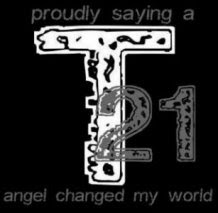Below is my letter. I'm posting it here b/c I want everyone to know that their words and their actions have an impact more profound than they believe. We all have a responsibility in this society to treat individuals as individuals -- not as a diagnosis, an ethnic group, an income group, or a color -- but as individuals capable of more than any one of us can possibly know.
Dear Professor _________:
As the administrator of an educational program designed to prepare students for careers focused on helping others, you encounter individuals from every walk of life with varying backgrounds, philosophies and beliefs.
Likewise, as the parent of 3-year-old identical twins with Down syndrome (DS), I also encounter countless people of diverse backgrounds and beliefs both in my day-to-day life and as the mother of special needs twins immersed in the Early Intervention program. Most of the people I encounter -- personally and professionally – have positive and hopeful attitudes toward my boys and their diagnosis. Some, however, are uncomfortable because they have had no exposure to Down syndrome and so shy away from and never have the pleasure of knowing my beautiful boys. While, unfortunately, still others have negative preconceptions – either openly or underlying -- about how DS affects my boys and, therefore, what they are ultimately capable of achieving… Or not achieving. These folks hail from every age and ethnic group and from all walks of life including nurses, doctors, teachers, mothers, neighbors and therapists. But, they all have one thing in common. They all started out as students… and, perhaps, were never exposed to anything contrary to their limiting beliefs. Not only are their misguided notions
detrimental to the development and future potential of children like mine. But, just as important, their attitudes can negatively impact a mother’s beliefs and hopes about the special needs of her child, which can drastically affect her expectations thereby limiting her child’s achievements.Fortunately, I am not that kind of mother! Rather, I have chosen to seize the tremendous opportunity my sons, Brian and Michael, have given me to help educate people – students like those in your program – who have chosen to work with children and adults with special needs including DS. My mission is to give your students the opportunity to experience Down syndrome first-hand, to ask questions, get answers and to change the antiquated and limiting preconceptions that may exist… one student, one class, and one university at a time. My boys, developing mentally and physically on the “typical” developmental curve, are a living example of what is possible. I think that every one of your students should have the awesome opportunity to meet them and believe in the possibilities for every child with Down syndrome.
For the past two years, we have been invited to speak with child development, psychology and speech & language students at Nassau Community College and Adelphi University. We have candidly discussed the cause and effect of Down syndrome on Brian and Michael; on their older sibling, Olivia; on me and my husband; as well as our experience with Early Intervention; our approach to their education and development; their overall and specific health issues; how DS has impacted not only our family, friends and neighbors but the community at large; and how the beliefs of their caretakers – your students – can greatly influence the outcome. Now, I would like to further expand Brian and Michael’s positive influence to reach more people who will play key roles in the development and futures of children like them. I would like to bring Brian and Michael (and Olivia, as available) for an “up close and personal” visit with your students.
It is my hope and intention to change the way the world sees Down syndrome, one person, one student, one visit with Brian and Michael at a time. The students who have had the pleasure of meeting my children are deeply touched – their outlook forever changed for the better. I ask that you present this wonderful opportunity to the faculty in your department and have them contact me to set up a class visit. To this end, I can be reached at home or via email. I look forward to hearing from you. Thank you, in advance, for your time and consideration.BELIEVE! no one can know the limitations of another!


















Educate the educator! Way to go Maggie! You bring the realm of hope to the table. And you are right, the parents are the first to address. If the backing is not there for their child in their own home, the child... any child... is already in fear of being lost. No-one in a position of 'authority' should, or has the right, to take hope away!
ReplyDelete